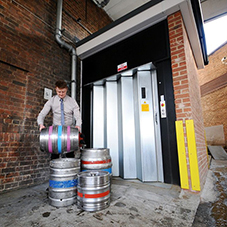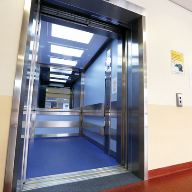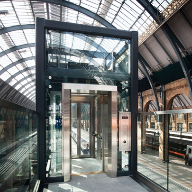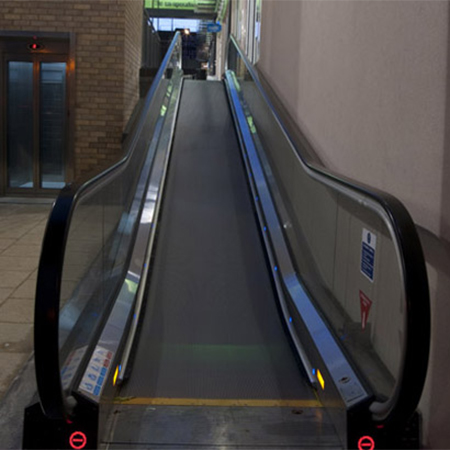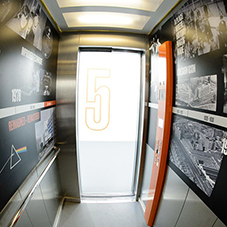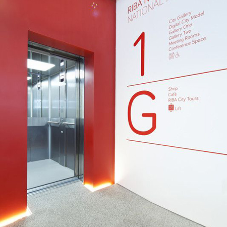Lifts are at the heart of a building, moving people and goods. But their worth depends on reliable performance and safe, ongoing function. Being faced with an out-of-order lift when you are less mobile or rely on one to move heavy goods from one level to another is a severe hindrance until the fault is fixed.
As a responsible lift owner, you can help minimise lift breakdowns. The advice outlined in this blog can ensure your lifts function as they should.
Tip 1 - Appoint an onsite lift owner or duty holder
The lift owner or ‘duty holder’ is designated responsible for the safe and suitable operation of the lift. Typically this is a facilities manager or site supervisor; it could also be a ‘tenant’s association’ or building owner where the lift is located if no other person or group is appointed.
This person needs to ensure they have all the relevant documentation readily available, such as manufacturer’s documentation, user manual and maintenance records, ensuring the documentation’s location is marked and communicated. It’s also worth making sure this person has lift-out-of-service signs to place on each floor should a breakdown occur.
Tip 2 - Regularly check the lift functions properly
Functional and visual checks on your lift are vitally important. They should be made weekly to check for any anomaly so that you can take remedial action straightaway if you spot something on the lift that is broken. The items to check are:
• Ensure the car lighting is fully functional
• Inspect the levelling of the lift at each level
• Check doors and door tracks are clear and unobstructed
• Check the landing and car operating buttons function correctly
• Listen for strange noises and check the ride is smooth
Tip 3 - Invest in servicing and inspections
Thorough inspection/examination checks that maintenance is being carried out correctly and focuses entirely on the lift's safety. In the UK, this is at least every six months if the lift carries passengers or every 12 if used only for goods.
To meet your thorough examination requirements under LOLER, you also need to appoint a lift specialist to perform regular servicing at specific intervals. Additionally, when you receive LOLER thorough inspection reports, be sure you send them to your lift service provider to review and action any recommendations. Click here to find out more about the cost-effective service contracts Stannah offers.
Regular servicing is completed through a lift maintenance contract, undertaken regularly by a lift specialist to help improve the life of the lift, maximise reliability and reduce the likelihood of lift breakdowns. Following a service, most lift specialists will provide a condition report, which may include recommendations for repair or improvements.
Tip 4 - Educate lift users to help prevent lift misuse
Ensuring the lift is used for the purpose laid out in its design specification helps ensure fewer lift incidents through misuse or, more seriously, users getting injured. It can be a distressing experience to be trapped in a lift; therefore, if applicable to your product, familiarise yourself with the technical aspects of releasing trapped passengers.
Tip 5 - Know what to do if a lift breaks down
Lifts can malfunction from time to time, and lift owners should have a detailed emergency plan in place, but put simply, if a breakdown occurs, then:
• If applicable, contact any trapped passengers to keep them calm and let them know you’re alerting the service provider or initiating release (dependent on lift)
• Contact your service provider for their lift breakdown services, advising where the lift is located, whether there are trapped passengers and any details of the issue. The level of response will depend on the severity of the issue, whether there are trap-ins and your level of lift service cover
• Display out-of-order safety signs for the lift on each landing whilst you wait for your service provider to attend the lift
• Once resolved, continue to maintain your lift regularly, undertaking any recommended lift repairs to avoid the risk of repeated breakdowns
It’s unfortunate that lifts sometimes break down, either due to mechanical or electrical faults, building issues or users. But if you’re feeling the burden of repeated breakdowns caused by old and unreliable lift technology, it might be time for an upgrade.
Stannah is experienced in lift refurbishment and replacement, large and small. Want to learn more? Check out their blog on why it pays to upgrade your lift.
Five tips that help prepare you for a lift breakdown
| T | 01264 343724 |
|---|---|
| E | contact@stannah.co.uk |
| W | Visit Stannah Lifts's website |
| Watt Close, East Portway, Andover, Hampshire, SP10 3SD |



